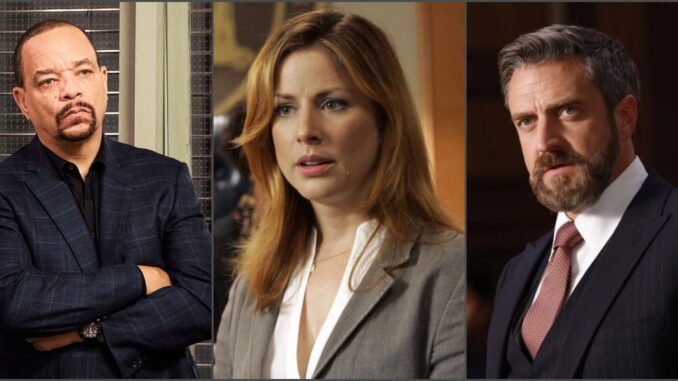
The hum of the precinct, the echoing click of heels on polished linoleum, the ever-present weight of unspoken trauma – these are the indelible marks of Law & Order: Special Victims Unit. For over two decades, SVU has held a mirror to society's darkest corners, its narratives woven with the threads of justice, retribution, and the often-elusive concept of closure. As the show contemplates an unprecedented Season 27, the notion of bringing back Detective Joe Velasco, not for a casual cameo but for a profound, overarching closure, presents a storytelling opportunity as audacious as it is necessary.
Velasco’s departure from the squad in Season 25 left an unsettling chord resonating through the SVU universe. Introduced as a seemingly earnest, if somewhat green, detective with a troubling past, his arc culminated in a murky entanglement with his former connections, accusations of a retaliatory killing, and ultimately, his quiet resignation under a cloud of internal affairs scrutiny. Unlike many episodic one-off characters, Velasco was a regular, a face in the squad room, a developing relationship with Olivia Benson. His exit was not clean; it was ambiguous, hinting at a truth far more complex than simple guilt or innocence, leaving audiences with an unsatisfying sense of unresolved moral ambiguity. For a show predicated on the pursuit of truth and justice, Velasco’s unresolved fate feels like an unaddressed loose end, a narrative sin begging for redemption or definitive damnation.
Bringing Velasco back for Season 27 for "closure" transcends mere fan service; it becomes a fundamental act of thematic and character completion. SVU has always been fascinated by the shades of gray, the imperfect nature of the justice system, and the heavy toll it takes on those who serve it. Velasco, with his street-smart origins and questionable past, embodied this complexity. His return, years after his disgrace, offers a rich canvas for exploration. Is he seeking exoneration? Is he a victim of a larger conspiracy, now ready to expose it? Or has he, in fact, descended further into the very darkness he once sought to escape, now a figure for the squad to finally confront?
The dramatic potential is immense. Imagine a season-long arc where Velasco is not just a guest star but a central figure, his presence casting a long shadow over the squad room. Perhaps he re-emerges as a witness to a horrific crime, his testimony compromised by his past. Or, more potently, he could be the subject of a new investigation, forcing Olivia Benson and her team to revisit the painful questions surrounding his previous departure. Did they fail him? Was their judgment clouded? Was he truly corrupted, or merely caught in an impossible bind? This forces a reckoning not just for Velasco, but for the entire institution SVU represents.
For Olivia Benson, Velasco’s return would be a profound test of her growth and leadership. She championed him initially, saw potential where others saw red flags. His murky exit was a personal blow, a moment where her judgment, usually so sharp, seemed to falter. Confronting Velasco again, understanding the full scope of what happened to him, would force Olivia to confront her own vulnerabilities, her own capacity for trust and forgiveness, or indeed, her righteous indignation. It could be the ultimate validation of her belief in the capacity for change, or a devastating confirmation of how easily good intentions can be corrupted. This is the kind of deeply personal, character-driven storytelling that has kept SVU vital for so long.
Season 27, if positioned as a potential final chapter or a significant turning point, demands a resolution to its most enduring mysteries and character arcs. The Velasco storyline, unresolved and morally complex, is precisely the kind of narrative loose end that needs tightening for true closure. It’s not about giving him a happy ending, but about providing a definitive answer to the question of his character and his place within the larger tapestry of justice. Whether he is redeemed, fully condemned, or sacrifices himself for a greater good, his arc needs to conclude in a way that resonates with the show’s core themes of accountability, moral ambiguity, and the relentless pursuit of an often-elusive truth.
In essence, bringing back Velasco for Season 27 closure is not just a strategic narrative choice; it’s an artistic imperative. It acknowledges the complexity of the character, respects the audience’s investment in his unresolved story, and provides SVU with an opportunity to delve one last time into the imperfect, often painful, but always compelling world where the lines between law and order are perpetually blurred, and true closure is the hardest justice of all.
